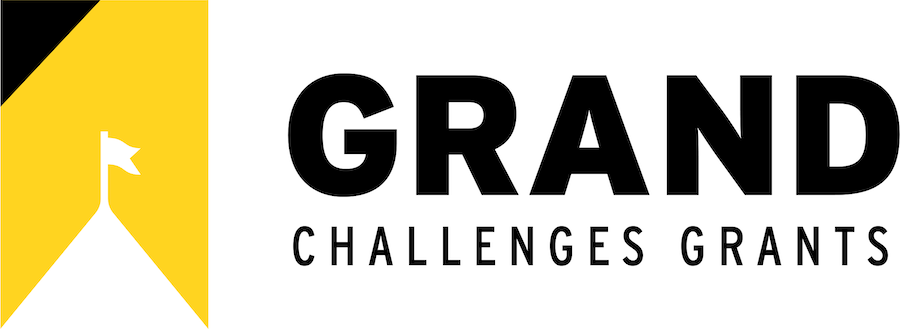Grand Challenges: Maryland Initiative for Digital Accessibility
Spotlight on AI: UMD Researchers Work to Enhance Accessibility for All
October 10, 2025
Making Tech Accessible with Benefits for All: The Maryland Initiative for Digital Accessibility (MIDA)
August 20, 2025
Building an Accessible Digital Wales: Access for All Conference
January 8, 2025
UMD MIDA Researchers Play Major Role at ASSETS Conference
November 7, 2024
Maryland Initiative for Digital Accessibility (MIDA) Advances Born-Accessible Approach and Helps Guide Policy
September 30, 2024
UMD Leads Projects Aimed at Career Support, Accessibility for People with Disabilities (Insight Into Diversity)
January 2024
Jonathan Lazar Gives Closing Keynote Speech About the Born-Accessible Model at the INTERACT Conference
December 5, 2023
A New Way to Make Digital Technology Accessible to All
November 13, 2023
Grand Challenges: MIDA Informs Public Policy on Technology Accessibility for People With Disabilities
October 24, 2023
Stephanie Valencia-Valencia Explores How Large Language Models Can Accommodate People with Disabilities
October 23, 2023
Recent Study Finds People with Dementia Use Changing Information Behaviors when Seeking Health Information
September 19, 2023
An Ally for Access: Palm-sized Robot Navigates Touchscreens for Visually Impaired Users
September 15, 2023
Colleges Must Embrace Accessibility Post-Pandemic, Say Experts (Ed Scoop)
July 25, 2023
Maryland Initiative for Digital Accessibility (MIDA) Launches
July 21, 2023
March 13, 2025
The New ADA Title II Regulation on Accessible Digital Technologies: What it Means for Your School
Time: 12:00 pm - 1:00 pm EST / 9:00 am - 10:00 am PST
Presenter: Eve Hill, JD. Partner, Brown, Goldstein & Levy LLP
Zoom Registration Required: Zoom Registration Link
April 2, 2025
Maryland Initiative for Digital Accessibility (MIDA)
Accessibility in Industry: MIDA Panel
Zoom Event, 4:30-6 PM
Registration is required: https://go.umd.edu/midatech
Accessibility ensures everyone can effectively use digital tools, games, platforms, and resources, regardless of their abilities or circumstances. Hear from industry leaders at Microsoft, AccessForge, and Level Access as they share insights on driving accessibility innovation in the digital world. Join the Maryland Initiative for Digital Accessibility as we explore this important topic and learn ways you can contribute to making technology more usable for everyone.
April 22-24, 2025
Including Disability Global Summit
The digital landscape presents opportunities for innovation and collaboration in advancing disability rights. Online only. Free and open to all.
Learn more at: https://including-disability.org/
May 2, 2025
Title II: Are You Ready? Preparing for the New Rule on Accessibility of Electronic Information and Web Content
Co-sponsored by the Maryland Initiative for Digital Accessibility (MIDA)
8:30AM-4PM, Anacostia Building, College Park, MD
We are one year out from the compliance deadline for the new rule on the accessibility of web content and mobile apps for all public institutions. Join us for a dynamic lineup, including a powerful keynote by Eve Hill, J.D., Partner at Brown Goldstein & Levy and Inclusivity Strategic Consulting and our opening plenary by Judy Risch, J.D., Ph.D., Title IX & Equity Access Services Special Advisor, Grand River Solutions each bringing over two decades of experience in civil rights and digital accessibility.
The world of digital technologies and content is designed to meet the needs of the average person, often creating inaccessibility for people with disabilities. That means that over 20% of people are structurally excluded from education, employment, and healthcare. The Maryland Initiative for Digital Accessibility (MIDA) will make technology accessible and help make the world more inclusive of and for people with disabilities.
The goal of MIDA is to change technology design research and practice so that it involves the disability community as an equal partner, accessibility is proactively built-in, and technology is “born-accessible.” Successfully transforming technology research and development to be born-accessible and sustainable requires the involvement and advocacy, from the beginning, of disability rights groups as equal partners with academic researchers and with technology companies.
The connections between these communities and strong interdisciplinary and cross-sector teams of experts, will create more effective, more impactful R&D projects on accessibility.
These projects will make more digital technologies and content accessible for people with disabilities and create technologies that may alleviate inaccessibility in the physical world, leading to fewer structural barriers, more inclusion in society, better educational outcomes, and employment success for people with disabilities.
Leadership Team:
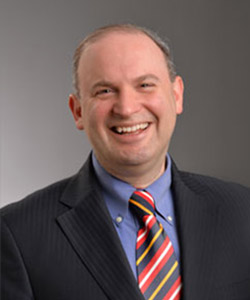 PI: Jonathan Lazar (INFO), Professor, Information Studies |
 Co-PI: Paul Jaeger (INFO), Professor, Information Studies |
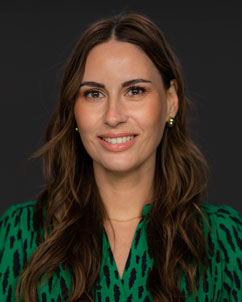 MIDA Associate Director of Higher Education: Galina Reitz (INFO), Senior Lecturer and Faculty Director, Information Studies |
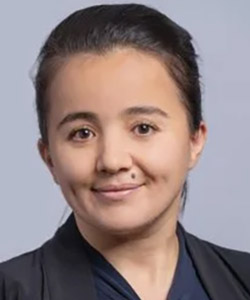 Co-PI: Gulnoza Yakubova (EDUC), Assistant Professor, Special Education |
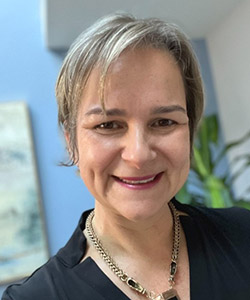 Co-PI: Ana Palla (DIT/SPH), Senior IT Accessibility and UX Specialist and Lecturer, School of Public Health |
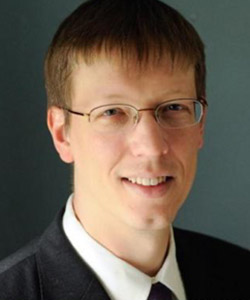 Co-PI: J. Bern Jordan (INFO), Assistant Research Scientist, Information Studies |
Campus Collaborators:
Additional faculty and staff members from across campus who will collaborate in MIDA include:
iSchool: Elizabeth Bonsignore, Eun Kyoung Choe, Tamara Clegg, Niklas Elmqvist, Jinjuan Heidi Feng, Ge Gao, Amelia Gibson, Ursula Gorham, Kate Izsak, Ron Padron, Galina Reitz, Victoria Van Hyning
College of Computer, Mathematical and Natural Sciences: Huaishu Peng, Abhinav Shrivastava
A. James Clark School of Engineering: Monifa Vaughn-Cooke
College of Education: Yewon Lee, David Weintrop
College of Arts and Humanities: Shevaun Lewis
College of Behavioral and Social Sciences: Kathy Dow-Burger, Lacey Curry, Eric Hoover, Yi Ting Huang, Eusebia Mont, Lisa Rickard
School of Public Health: Elizabeth Aparicio, Shannon Jette, Sara Olsen
University Libraries: Nedelina Tchangalova
University Career Center: Nancy Forsythe
ADA Compliance Officer: Emily Lucio
TerpsEXCEED Program: Amy Dwyre D'Agati
Partnerships:
- National Federation of the Blind
- National Association of the Deaf
- American Association of People with Disabilities
- Easterseals
- Teach Access
- Disability Rights Maryland
- The Maryland Image Center
- Maryland Library for the Blind and Print Disabled
- The Maryland Technology Assistance Program (MDTAP)
- Blind Industries and Services of Maryland
- The Down Syndrome Association of Maryland
- Gallaudet University
- Adobe
- Microsoft
- Meta

